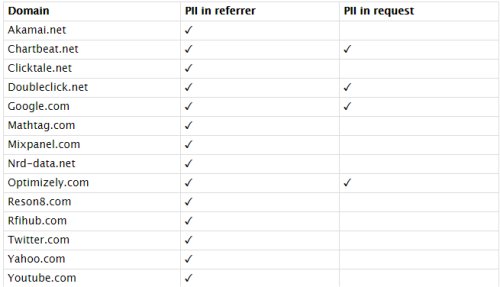Healthcare.gov shares info with third party tracking sites
Posted by: Jon Ben-Mayor on 01/21/2015 10:14 AM
[
 Comments
]
Comments
]
If you are one of the millions of Americans who have signed up for the Affordable Care Act at Healthcare.gov - bits and pieces of your private health data are being shared with dozens of third party tracking sites. These sites now have the ability to create a unique profile of your habits based on that info and bombard you with interest based ads.
The following is a table showing which third party domains EFF researchers confirmed were receiving the private health data.

Third-party resources could also introduce additional security risks to the healthcare.gov website, with each included third-party resource increasing the attack surface of the site. If an attacker were able to compromise just one of the third party resources included on healthcare.gov they could potentially compromise the accounts of every user of healthcare.gov. The attacker could then sell the Private Health Information or hold it for ransom.
The following is a table showing which third party domains EFF researchers confirmed were receiving the private health data.
Third-party resources could also introduce additional security risks to the healthcare.gov website, with each included third-party resource increasing the attack surface of the site. If an attacker were able to compromise just one of the third party resources included on healthcare.gov they could potentially compromise the accounts of every user of healthcare.gov. The attacker could then sell the Private Health Information or hold it for ransom.
Comments






